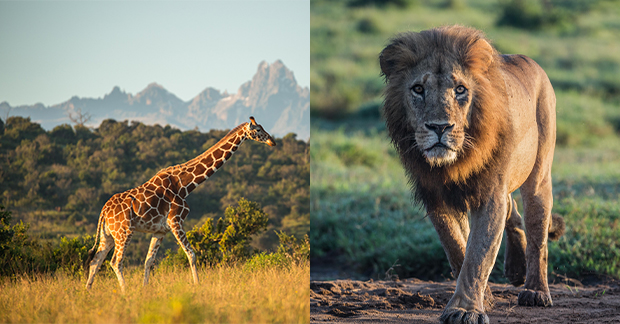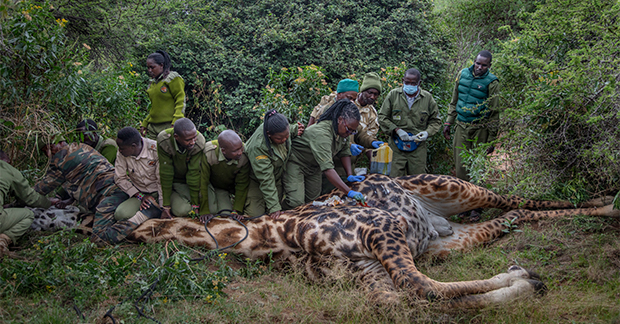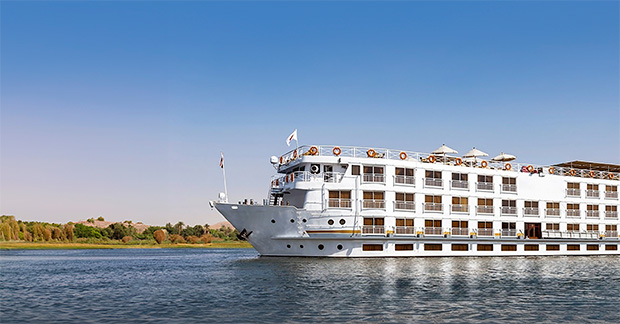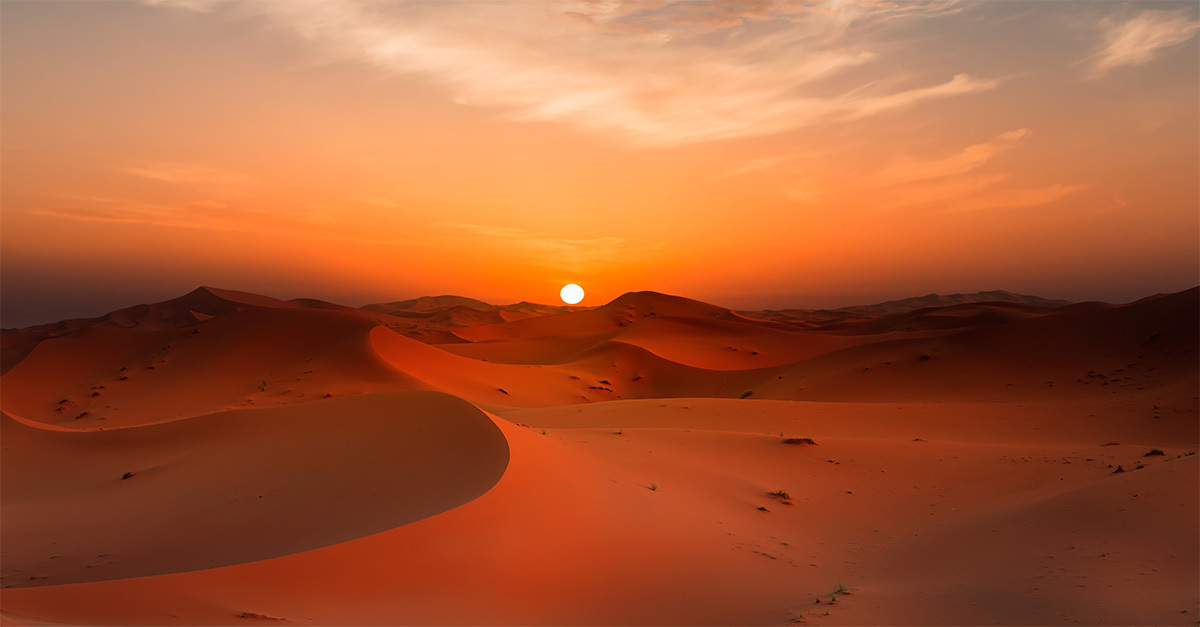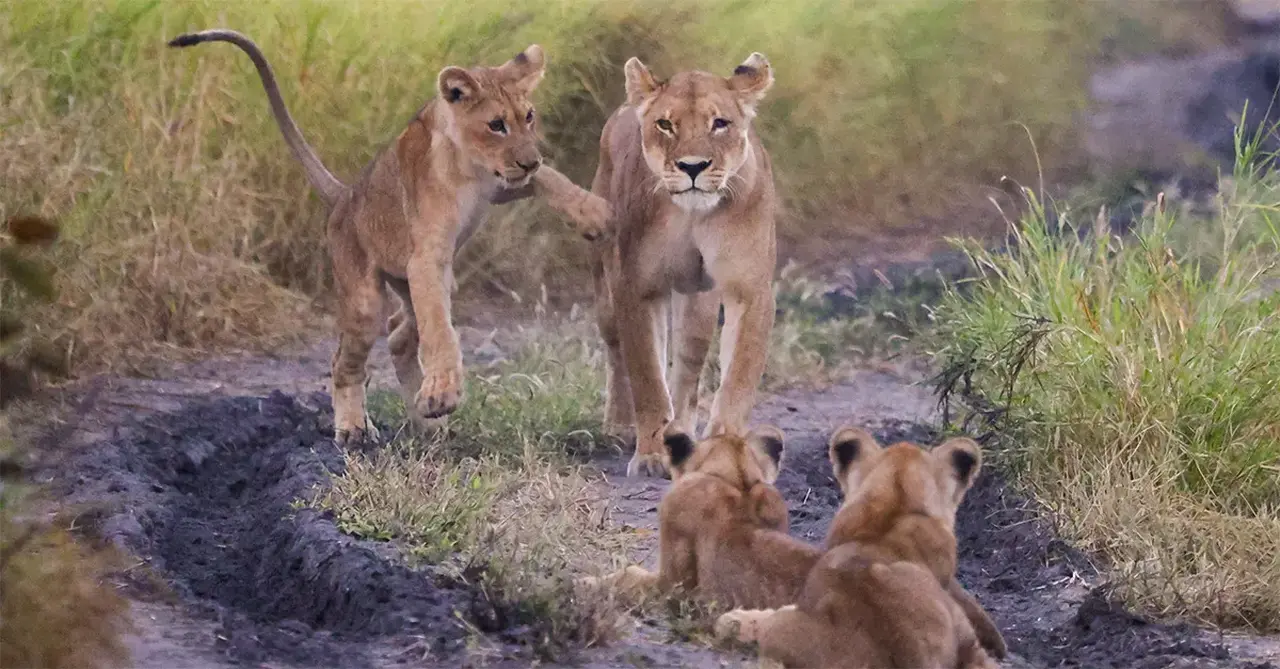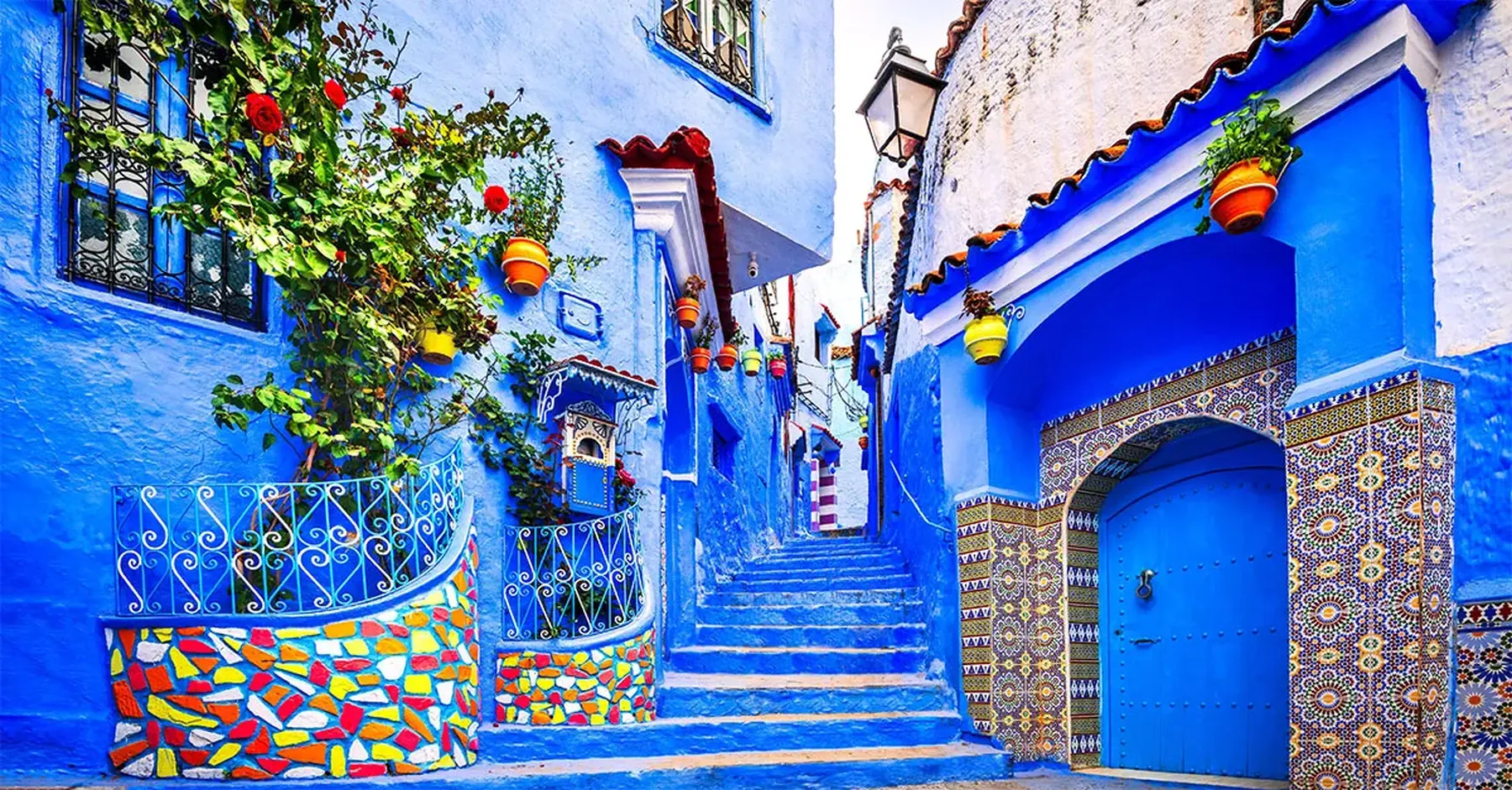You are viewing 1 of your 2 free articles
Inspiring female guides and rangers in Africa
Following the success of World Female Ranger Day, we speak to guides in Kenya and Tanzania to find out how they’re inspiring women to enter the field
Click here to download and save as a PDF

Saleh Seif, College of African Wildlife Management
Saleh is course coordinator at the College of African Wildlife Management (CAWM). The course provides training for female guides under the Mountain Lioness Scholarship, which was set up in partnership between Exodus Travels and the Robertson Outdoor Bursary (ROB) to support women entering the field.
Q. What does the Mountain Lioness Scholarship involve?
A. The scheme offers women in Tanzania the opportunity to train to become fully-licensed guides on Kilimanjaro. Exodus approached ROB to create a scholarship specifically for women and has committed to funding 30 places over a three-year period. In 2020, its first year, 108 women were recruited and undertook their guide training in October. Nine have now been awarded their full licences and the final lioness will finish her field module this September.
Q. What was the motivation behind the programme?
A. The work of the three partners over the past few years has highlighted the inequalities between the number of men compared to the number of women working as guides on Kilimanjaro. We wanted to empower Tanzanian women to access guide training, providing them with the chance to have a career and earn a salary.
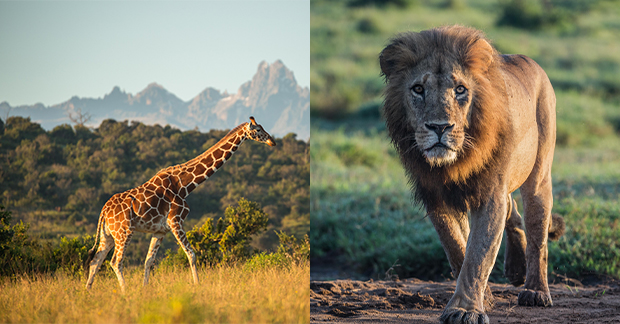
Q. What have been the key challenges and how has Covid affected opportunities for employment?
A. Tanzanian women are motivated to improve their lives, but convincing them that they are capable of becoming guides and encouraging them to apply for the scholarships was initially a challenge. The travel restrictions caused by the Covid pandemic have also had a massive impact on tourism in Tanzania, so finding work as guides is a challenge in the current circumstances.
At the moment, the lionesses are mostly working in farming and local enterprises while eagerly awaiting the return of tourists to the country so they can start guiding on Kilimanjaro, although two have been employed part-time by the college to help on other training programmes.
Q. How under?represented are women in guiding, and has this changed much in recent years?
A. The guiding profession around the world is renowned for being male-dominated, though this is now changing in the western world. In developing countries like Tanzania, the situation is worse. Before CAWM took over guide training in 2019, there were 2,825 guides, only three of whom were female. Since then, the college has trained a further 1,216 guides, 59 of whom are women.
Q. What issues do women face in being a guide on Kilimanjaro?
A. Culturally, women in Tanzania have not been encouraged to seek careers and are often disadvantaged, as they haven’t been able to complete a full education because of family duties. In addition, some employers have discouraged women from pursuing careers in guiding and portering due to the belief they aren’t capable of the work.
Our lionesses are a shining example of what women can achieve when given the same opportunities as men. This is inspiring other women to believe they too can have a future working as a guide.

Joyce Nemwa, Borana Conservancy
Joyce works as a ranger at the Borana Conservancy, a 32,000?acre rhino sanctuary in Kenya’s Laikipia region. She joined in February 2019 as part of the conservancy’s initiative to recruit more female rangers into the security team.
Q. What attracted you to train to be a ranger and what’s your favourite aspect of the job?
A. I saw an advertisement from Borana recruiting for female rangers. I had an interview and was asked to do a 5K run, and was then selected to be one of the new female recruits. The highlights for me are going on patrols, interacting with elephants and rhinos, and regular training runs – but there have been some scary moments too!
For example, the ranger team and I were once patrolling the conservancy and didn’t see a buffalo that was hiding in the bushes. The buffalo charged, but we all managed to get out unscathed apart from a radio, which was dropped and trampled by the buffalo…
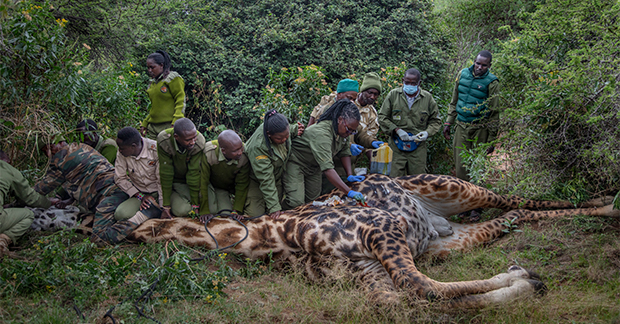
Q. What is the perception of female rangers in Kenya?
A. Being a female ranger here is interesting because people in the community don’t think it’s something women should be doing. They tend to believe being a ranger is reserved for men who work 24 hours a day, carrying guns, interacting with animals and training, while women look after the children. But we are showing that women can also do what men are doing.
Q. What are your goals for the future?
A. I hope to empower women in the community while still tending to and supporting my family. My ultimate aim is to always protect wildlife, move up the ranks and be respected as a ranger, while inspiring young girls growing up around the Borana Conservancy.

Lornah Musanka, Cottars Wildlife Conservation Trust
Lornah is a community ranger for the Cottars Wildlife Conservation Trust, a non-profit organisation working with local communities to conserve wilderness and wildlife corridors bordering the Masai Mara and Serengeti national reserves.
Q. What does your day-to-day work involve?
A. My duties involve patrols, monitoring wildlife and controlling illegal grazing, poaching and other activities. As we border Tanzania, I also inspect vehicles at the main entrances to the conservancy. Growing up, I always had a passion for protecting nature, so it’s a dream job for me. Creating awareness in local communities has had a very positive impact on the population of elephants and other endangered species, so it’s great to be able to contribute to that.
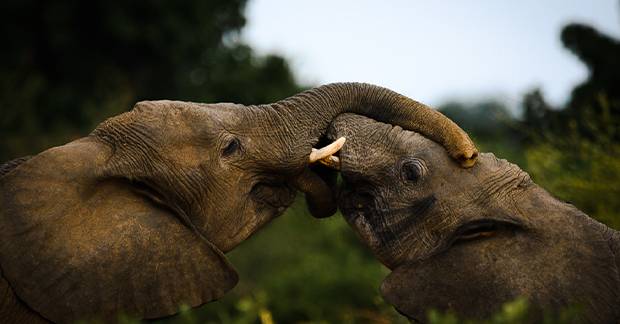
Q. What’s been your most memorable experience as a ranger?
A. It has to be the day we reported an injured giraffe in our conservancy. The management called out the Mara vets to come and treat the giraffe, but he woke up before the doctors had finished the treatment, so we had to hold him tight until it was done – that was really scary.
Also the day we received reports of a person intending to sell a pangolin, while we were pursuing the poacher. Plus, I’ve seen some memorable things, not least elephants mating!
Q. What more could be done to encourage women to enter the field?
A. I believe having women in the field will motivate others to realise that what a man can do, a woman can do better! I believe educating women in the surrounding communities will be key, as will motivating those who are already working as rangers.
Future vision

Kitaba Wadia Kapanya, Mountain Lioness, Tanzania
“I hope we’ll be an inspiration to other women in the local community and encourage them to follow their dreams to become a mountain guide. Being a porter or mountain guide was always seen as a man’s job, but I think this is going to change. Women can do any job if they put their heart into it.”

Nambeke Agustino Kundaha, Mountain Lioness
“I believe the Lioness Scholarship programme will help change opinions on gender equality. The number of female guides is still low, but this programme will encourage women to apply, and I have no doubt that one day there will be an equal number of male and female guides on the mountain.”

Kasia Morgan, head of sustainability and community, Exodus Travels
“Our vision is to not only help open the door to new opportunities for those undertaking the scholarship, but also to see these pioneering lionesses inspire many more women to forge careers on the mountain and continue breaking through barriers.”
Ask the expert
Holly Budge, founder, How Many Elephants
Holly Budge established UK-registered charity How Many Elephants to educate people about the negative impacts of the African elephant ivory trade. She also co-founded the annual World Female Ranger Day, designed to shine a light on female rangers and provide funding to organisations including the Cottars Wildlife Conservation Trust.
She says: “We need to work together in a global capacity to create real and long-lasting change for our planet. Across the world, incredible female rangers are working tirelessly to do just that, and their work is fundamental to the preservation of our natural heritage.
“Less than 11% of the global wildlife ranger workforce is female, but we have identified more than 3,500 female rangers across 18 countries in Africa so far, and we’ve discovered many more in other countries. By bringing these women together via the World Female Ranger Day online platform, they can share their knowledge, amplifying global conservation efforts.
“By uniting and working together, there is a greater chance of successfully preserving biodiversity.”
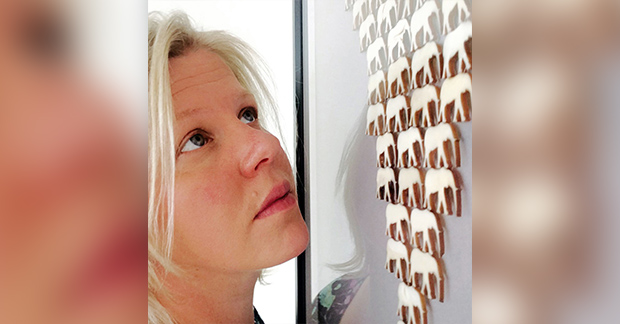
PICTURES: Georgina Goodwin; Chags Photography/Amish Chhagan; Leela Bennett; Shaun Mousley; James Eades.
Read More: x.travelweekly.co.uk/destinations/a-kenya-safari-without-the-crowds" target="_blank">A Kenya safari without the crowds
x.travelweekly.co.uk/articles/376314/family-holidays-in-africa-for-second-time-visitors" target="_blank">Family holidays in Africa for second-time visitors
x.travelweekly.co.uk/destinations/the-best-new-luxury-safari-lodges-opening-in-africa" target="_blank">The best new luxury safari lodges opening in Africa


